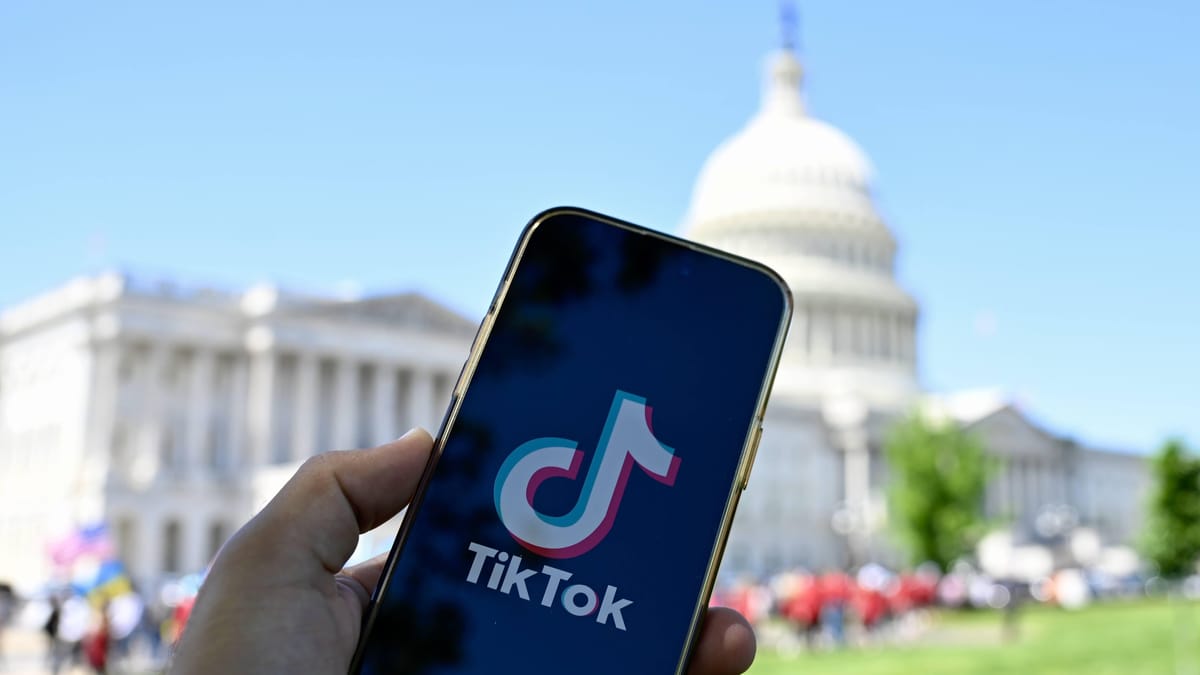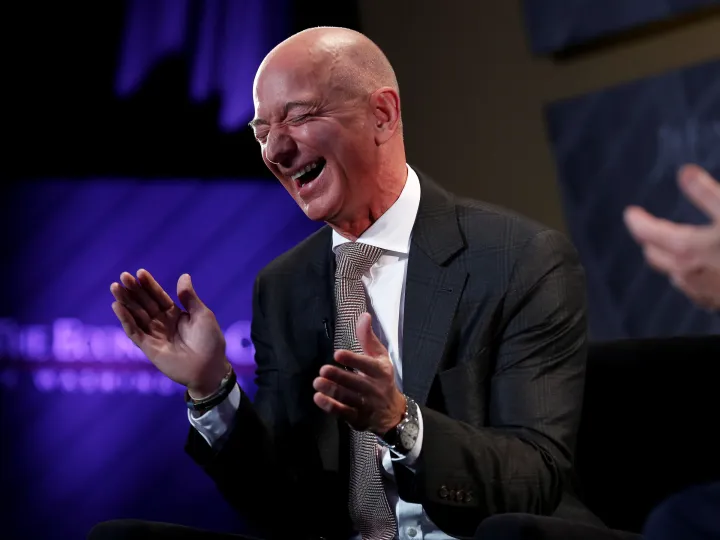The TikTok case highlights a new geopolitical struggle over digital sovereignty, where the battle for global influence now revolves around control of data, algorithms, and online attention.
On January 19th, TikTok faces a potential ban in the United States unless its Chinese parent company ByteDance sells the platform. The stakes extend far beyond the app's 170 million American users – this Supreme Court case marks the first major battle in an emerging conflict over who controls the digital spaces where we increasingly live our lives. Donald Trump, who once tried to force TikTok's sale during his first term, has emerged as an unexpected (if self-serving) defender of the platform, showing how traditional political battle lines have begun to blur when confronted with the realities of digital power.
This case crystallizes the governance paradox of our time: we've built a digital commons that knows no borders, but we still operate within a Westphalian system of nation-states. The resulting tension creates what we might call the Digital Sovereignty Trilemma: you can have national security, free speech, or global digital platforms – pick any two.
170 million Americans use TikTok monthly. That's more than half the country spending time on a platform arguably controlled by a foreign power. The historical parallel would be if, during the Cold War, half of Americans got their news and entertainment from a Soviet-owned television network. The key difference? That network wouldn't have had access to granular data about viewers' locations, interests, and social connections.
But there's more to this than just data privacy concerns. We're witnessing the emergence of what we might call "algorithmic mercantilism" – a 21st-century twist on the old economic doctrine where nations competed to accumulate gold reserves. Today's digital empires compete not for precious metals, but for something potentially more valuable: attention, influence, and behavioral data.
The mercantilist parallel is particularly apt because, just like its historical predecessor, this new digital mercantilism often leads to policies that seem rational from a national security perspective but potentially harmful from an economic efficiency standpoint. The proposed TikTok ban is a perfect example: it might protect against hypothetical Chinese surveillance, but at the cost of destroying billions in economic value and limiting consumer choice.
This brings us to an uncomfortable question: what exactly constitutes "national security" in the digital age? The Justice Department argues that TikTok poses a threat because it has "access to immense amounts of data on American users" and the "ability to secretly manipulate content." But this description could apply to virtually any social media platform. Facebook has vast amounts of user data. YouTube's algorithm shapes what content users see. The key difference is that these platforms are American-owned.
Which leads us to a provocative thought experiment: imagine if, during the rapid industrialization of the 20th century, countries had banned foreign-owned factories out of fear they might be used for espionage. This would have severely hampered global economic development. Are we risking something similar with digital platforms?
The counterargument, of course, is that social media platforms aren't just economic entities – they're also powerful tools for social and political influence. ByteDance, TikTok's parent company, is subject to Chinese law, which requires companies to share data with the government when requested. This creates what computer scientists call a "trusted third party problem": no matter how much TikTok promises to protect user data, the Chinese government remains a silent partner in the relationship.
But the same argument could (indeed, should) be made about American platforms operating in other countries. The CLOUD Act allows the U.S. government to compel American companies to hand over data stored anywhere in the world. When other countries raise concerns about this, we tend to dismiss them as being paranoid or anti-competitive. The TikTok case forces us to confront this double standard.
Trump's evolution on this issue is particularly telling. During his first term, he tried to force TikTok's sale to American companies, viewing it primarily through a national security lens. Now, with his campaign generating "billions of views" on the platform, he sees it through a free speech lens instead. This is hypocritical, yes – but it's also a perfect illustration of how digital platforms blur the lines between security, speech, and commerce in ways our traditional policy frameworks struggle to handle.
How do we govern digital spaces that are simultaneously global and local, commercial and political, private and public? The current approach of treating digital platforms like traditional businesses subject to national jurisdiction is increasingly showing its limitations.
If Congress can ban TikTok based on its foreign ownership and theoretical security risks, what stops other countries from banning American platforms using similar logic? We might be inadvertently creating a framework for the balkanization of the internet, where each country maintains its own digital walled garden.
This is the "Copenhagen Interpretation of Digital Sovereignty" – digital platforms exist in a superposition of states until they're observed by regulators. TikTok is simultaneously a social media platform, a data collection operation, and a potential security threat. Which aspect becomes "real" depends largely on who's doing the looking and what they're looking for.
The irony is that both China and the United States are approaching this issue with remarkably similar logic, just from opposite directions. China's Great Firewall and America's proposed TikTok ban both stem from the same basic impulse: the desire to maintain national sovereignty over digital spaces. The main difference is that China started from a position of digital autarky and is slowly opening up, while the U.S. started from digital openness and is gradually imposing restrictions.
This symmetry suggests we might be witnessing something bigger than just a bilateral dispute – perhaps the early stages of a fundamental reorganization of how digital spaces relate to physical territories. Just as the Peace of Westphalia established the principle of territorial sovereignty, we might need a new framework for digital sovereignty.
But what would a framework even look like? The current binary choice between unrestricted global platforms and complete national control seems increasingly inadequate. We might need something more nuanced – perhaps a system of digital diplomatic protocols, where platforms operate under negotiated international frameworks rather than purely national ones.
The immediate practical challenge is that any such framework would need to balance three competing interests: national security, free speech rights, and the economic benefits of global digital platforms. The TikTok case demonstrates how difficult this balance is to strike. A ban might address security concerns but at the cost of free speech and economic efficiency. Allowing unrestricted operation addresses free speech and economic concerns but potentially at the cost of security.
What makes this particularly difficult is that we're trying to solve 21st-century problems with 20th-century tools. Our legal frameworks, built around concepts like corporate ownership and national jurisdiction, struggle to capture the reality of global digital platforms. TikTok isn't just a company that happens to be Chinese-owned – it's a new kind of entity that exists simultaneously in multiple jurisdictional contexts.
The Supreme Court's decision, whatever it may be, will likely mark a crucial milestone in how we think about these issues. But it's unlikely to resolve the fundamental tension between digital globalism and national sovereignty.
In the meantime, we're left with an uncomfortable reality: the digital commons we've built is increasingly at odds with our system of national sovereignty. It's not whether TikTok poses a security threat – it's whether our current concept of national security makes sense in a world where the most important territories are digital rather than physical.
As more of our social, economic, and political life moves into digital spaces, how we resolve these questions will shape not just the future of the internet, but the future of human society itself.



